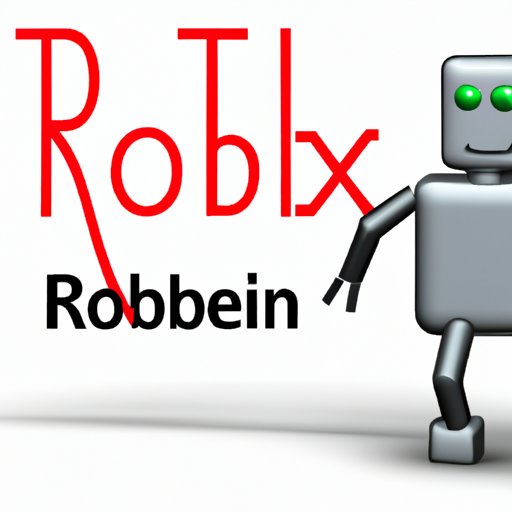Introduction
Robots.txt is a text file used to communicate instructions to web robots (also known as “spiders” or “crawlers”) on how to access and crawl the pages of your website. It is an important tool for website optimization, helping to improve the performance, security, and maintenance of your site. In this article, we will explore what robots.txt is, how it works, and the benefits of using it on your website.

Exploring the Basics of robots.txt
So, what is robots.txt? Simply put, it is a text file stored on your web server that contains instructions for web robots on which pages of your website they are allowed to access and crawl. The robots.txt file is typically located at the root domain of your website (e.g. http://www.example.com/robots.txt).
How to use it? The syntax of robots.txt is fairly straightforward. You can specify which web robots you want to allow access to your website, and which pages you want them to ignore. For example, if you wanted to block all web robots from accessing your “/admin” folder, you would include the following line in your robots.txt file:
User-agent: *
Disallow: /admin/
This tells all web robots to not crawl any pages within the “/admin” folder. You can also use robots.txt to specify which web robots you want to allow access to your website, as well as which specific pages you want them to crawl.
A Comprehensive Guide to Using robots.txt for SEO
Robots.txt is an important tool for website optimization, particularly when it comes to search engine optimization (SEO). Here is a comprehensive guide to using robots.txt for SEO:
Robots.txt Basics
The most basic use of robots.txt is to block web robots from crawling certain pages of your website. This can be useful for preventing search engines from indexing pages that you don’t want them to, such as pages with sensitive information or pages that are still under construction.
How It Works for SEO
By blocking certain web robots from crawling your website, you can make sure that only the pages you want to be indexed by search engines are actually indexed. This can help improve your search engine rankings, as well as prevent your website from being penalized by search engines for duplicate content.
Tips for Optimizing Your Site with robots.txt
When using robots.txt for SEO, there are a few tips to keep in mind:
- Be sure to check the syntax of your robots.txt file periodically to make sure it is up-to-date and accurate.
- Make sure you are blocking only the pages you want to block, and allowing only the pages you want to be indexed.
- Be aware of any changes to the search engine algorithms, and adjust your robots.txt file accordingly.

The Benefits of Using robots.txt on Your Website
Using robots.txt on your website can provide a number of benefits, including improved performance, increased security, and easier maintenance. Let’s take a closer look at each of these benefits:
Improved Performance
Using robots.txt can help improve the performance of your website, as it prevents web robots from crawling pages that are not necessary or relevant. This can save bandwidth and reduce server load, resulting in a faster website. According to a study conducted by Akamai Technologies, “blocking irrelevant URLs via robots.txt can improve website response time by up to 15%.”
Increased Security
Using robots.txt can also help increase the security of your website, as it prevents web robots from accessing pages that contain sensitive information. This can help protect your website from malicious attacks and data breaches.
Easier Maintenance
Finally, using robots.txt can make it easier to maintain your website, as it prevents web robots from crawling pages that are still under construction. This can help ensure that those pages are not indexed by search engines before they are ready to be released.

An Introduction to robots.txt and Its Uses in Web Crawlers
In addition to SEO, robots.txt can also be used to control web crawlers, which are software programs that automatically browse the web in order to collect data. Here is a brief introduction to robots.txt and its uses in web crawlers:
What is a Web Crawler?
A web crawler is a type of software program that automatically browses the web in order to collect data. Web crawlers are often used by search engines to index websites and gather information about them.
How Does robots.txt Help Web Crawlers?
Robots.txt can be used to control which pages a web crawler can access and crawl. By specifying which pages you want the web crawler to ignore, you can prevent it from collecting unnecessary data.
Other Uses for robots.txt
In addition to controlling web crawlers, robots.txt can also be used to control which pages are indexed by search engines, as well as to block web robots from accessing sensitive information.
Conclusion
Robots.txt is an important tool for website optimization that can improve your site’s performance, security, and maintenance. It can be used to control which pages are indexed by search engines, as well as to block web robots from accessing sensitive information. Additionally, it can be used to control which pages a web crawler can access and crawl. In summary, robots.txt is an invaluable tool for website optimization that can help you get the most out of your website.
(Note: Is this article not meeting your expectations? Do you have knowledge or insights to share? Unlock new opportunities and expand your reach by joining our authors team. Click Registration to join us and share your expertise with our readers.)
